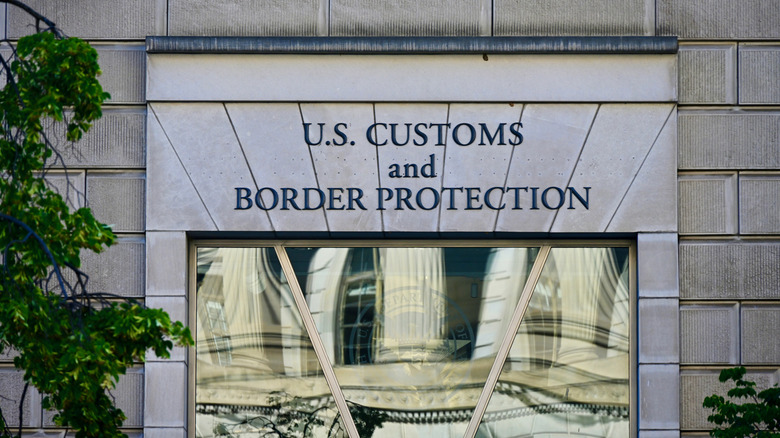A Changing Law Might Raise The Low Prices Of Discount Brands Like Shein And Temu
Fans of deeply-discounted online marketplaces like Shein and Temu might soon find their fandom shift to frustration. New, stricter import regulations regarding shipping under the "de minimis exemption" are in the works, and enforcement of these regulations might make those used to shopping "like a billionaire" ultimately decide to shop elsewhere.
Shein is known for selling fast fashion and accessories for prices so low, they make bargain basements seem like Saks Fifth Avenue. Similarly, Temu sells everything from power tools to beauty products for chump change, in exchange for a customer base in the millions. You can get a dress for under $6 on Shein, and a knockoff JBL boombox on Temu for under $5. Shoppers of direct-to-consumer discount sites like Shein, Temu, Alibaba, Wish, and Amazon Haul stuff their app-based carts full of deals, then wait two weeks or so for their extremely discounted deliveries to arrive from their usual points of origin: Chinese factories.
While Americans brace for ways new tariffs will impact budgets, companies like Shein and Temu might not be as worried, unless de minimis laws truly change. Authorities note that direct-to-consumer powerhouses have stretched the de minimus tax loophole to within an inch of its life to bypass tariffs, facilitate dangerous drug trafficking, all of which is sustained by forced, exploitative labor. A possible paradigm shift in import laws, as well as how they are enforced, could end up ending de minimis as we know it, or at least make deal hunting more expensive.
What the de minimis exemption is
The latin phrase "de minimis" comes from the full (and old) legal doctrine, "de minimis non curat lex," which Merriam-Webster translates as "the law does not concern itself with trifling matters." Generally speaking, de minimis rules are solve-all, no-fuss blanket laws that apply to small matters (under a certain threshold of importance) that would otherwise take up too much of a court's time.
Shipping something under the de minimis exemption is supposed to allow individuals to ship goods to themselves duty-free for personal use, as long as the value of those goods is under a certain amount per day. This was initially meant to allow folks to send duty-free souvenirs home from abroad. A 1938 amendment to the Tariff Act of 1930 made the de minimis limit $5, which gradually increased to $200 over the years, until 2016, when Congress upped the de minimis limit to $800.
Today, that daily, duty-free, personal import limit of $800 is one of the highest in the world. Shipping under the current rule allows businesses like Shein and Temu to sell shoppers low-value goods while avoiding tariffs, because each shopper's order falls below the daily threshold. Of course, the volume that companies like Shein and Temu are shipping makes mincemeat of the letter of the law when it comes to de minimis. In December 1923, the Wall Street Journal reported that Shein and Temu shipped an average of 1 million packages to the U.S. per day.
Why the law is changing now and how it may affect prices
In April 2024, Troy A. Miller, a U.S. Customs and Border Protection senior official performing the duties of Commissioner, made an address to the National Customs Brokers and Forwards Association of America. Miller highlighted that the CBP processed around 4 million de minimis shipments daily, and much of the paperwork accompanying those shipments was "vague and inaccurate." Miller's message was less about de minimus shippers skirting tariffs, and more about the danger of unchecked de minimis shipping.
"Small packages may be of low cost but they provide bad actors with high rewards." Miller sai in the address d, adding: "Especially for the illegal trafficking of narcotics, synthetic drugs and the chemicals and tools used to make things like fentanyl, which are killing American youth." The Biden-Harris administration announced a governmental push for de minimis reform in September 2024, with a fact sheet highlighting some of the government's regulatory plans to crack down on bad actors enjoying unsafe, unfair, and untaxed trade.
Tariff evasion is just one of the real reasons why Shein is so cheap, not to mention one of the reasons why Temu is so cheap. Still, being able to escape any tariffs, let alone Donald Trump's proposed tariffs for his second term, is a contributing factor. While industry opinions are split on de minimus reform, any reform or enforcement is sure to affect the prices of low-value goods, and highlight the data-collecting goals of such online marketplaces. The eye-popping volume of U.S. imports from companies like Shein and Temu might mean Americans love shopping like billionaires, but such low prices always comes at a cost.


